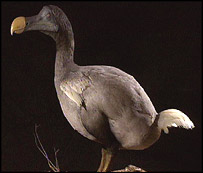|
The Society:
 HOME
HOME
 Introduction
Introduction
 Objects
Objects
 Join or renew
Join or renew
 Guest Book
Guest Book
 Hall of Fame Hall of Fame
 Products For Sale
Products For Sale
 Classifieds Ads
Classifieds Ads
 Contact Us
Contact Us
The Avicultural Journal
 Journal Archives
Journal Archives
 Exotic Bird Species
Exotic Bird Species
 Budgerigar Information
Budgerigar Information
 Canary Information
Canary Information
 Parrot Information
Parrot Information
 Finch Information
Finch Information
 General Information
General Information
 First Breeding Awards
First Breeding Awards
Affiliations:
 Affiliated Clubs
Affiliated Clubs
 Parrot Association of Canada
Parrot Association of Canada
 Avian Preservation Foundatn
Avian Preservation Foundatn
Showing Birds:
 Canadian Shows
Canadian Shows
 National Results
National Results
 Accredited Judges
Accredited Judges
Leg Bands:
 General Information
General Information
 Band Size Chart
Band Size Chart
 Trace a Band
Trace a Band
 Band Prices
Band Prices
 Order Bands
Order Bands
 Current Ring Codes
Current Ring Codes
Links:
 Links
Links
 Copyright & Privacy Policies
Copyright & Privacy Policies
|
DODO BIRD

RAPHUS CUCULLATUS
'Foolish' bird
Forest-dwelling and flightless
Waded in ponds to catch fish
Killed by sailors for extra food
Ship animals stole its eggs
Scientists find 'mass dodo grave'
The bones are at least 2,000 years old
Scientists have discovered the "beautifully preserved" bones of about 20 dodos at a dig site in Mauritius.
Little is known about the dodo, a famous flightless bird thought to have become extinct in the 17th Century.
No complete skeleton has ever been found in Mauritius, and the last full set of bones was destroyed in a fire at a museum in Oxford, England, in 1755.
Researchers believe the bones are at least 2,000 years old, and hope to learn more about how dodos lived.
A team of Dutch and Mauritian scientists discovered the bones in a swampy area near a sugar plantation on the south-east of the island.
The bones were said to have been recovered from a single layer of earth, with the prospect of further excavations to come.
Sections of beaks and the remains of dodo chicks were thought to be among the find.
The discovery was hailed as a breakthrough in the Netherlands.
"This new find will allow for the first scientific research into and reconstruction of the world in which the dodo lived, before western man landed on Mauritius and wiped out the species," the country's Natural History Museum announced in a statement.
Dutch geologist Kenneth Rijsdijk, who led the dig, said DNA samples from the dodo bones could revolutionise our understanding of how the birds lived.
The dodo was mocked by Portuguese and Dutch colonialists for its size and apparent lack of fear of armed, hungry hunters.
It took its name from the Portuguese word for "fool", and was hunted to extinction within 200 years of Europeans landing on Mauritius.
|